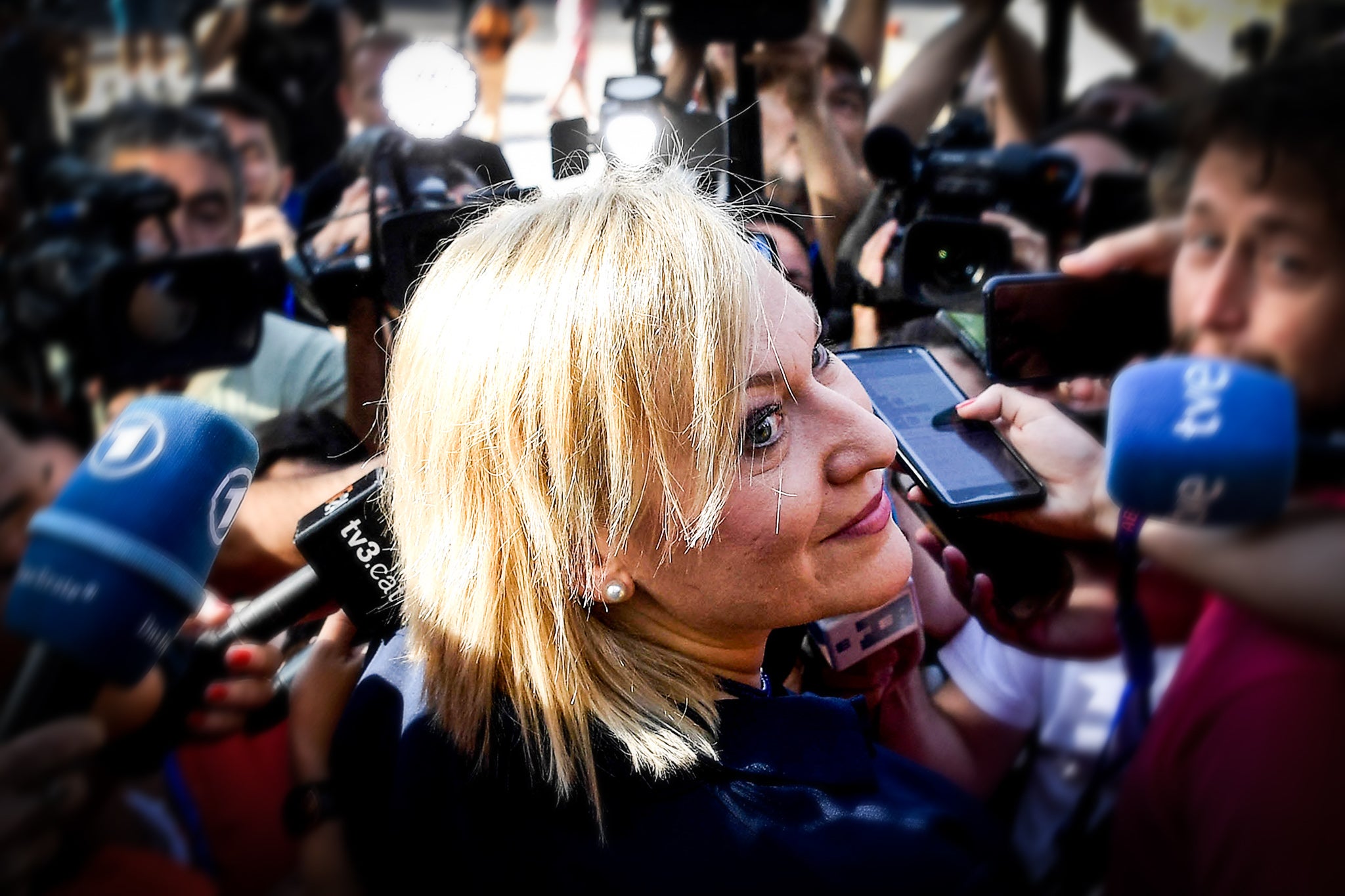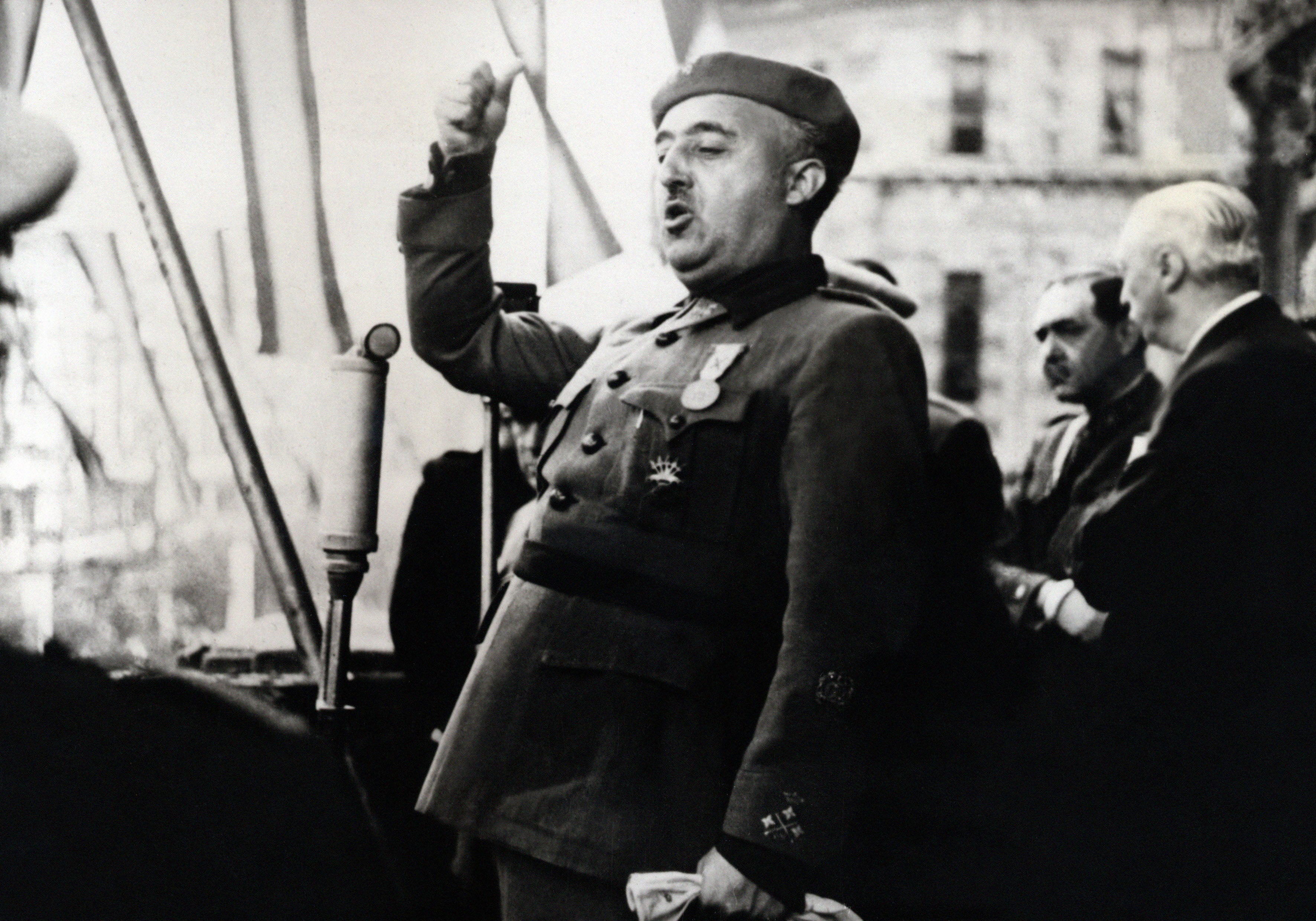Could a DNA law help reunite victims of Spain’s ‘stolen babies’ scandal still seeking closure decades on?
A new film explores the horrific state-sponsored snatching of newborn babies that begun in Spain during the dictatorship of General Franco and continued for years afterwards. Graham Keeley talks to its director – and some of the victims of the scandal – about the battle to find justice for the thousands of families effected


It is one of Spain’s most shameful periods – thousands of babies snatched from their mothers across half a century.
From the end of the Spanish civil war to the early 1990s, tens of thousands of children became so-called “stolen babies”. These newborns were victims of General Francisco Franco’s desire to “cleanse” the nation by taking the babies of left-wingers or Republicans and giving them to childless couples who were more sympathetic to the regime.
After Franco’s death, children were still taken away from their mothers by priests, nuns, midwives, or hospital workers for money and sold on via the secretive adoption networks that had been created. The mothers were sometimes in prison, not married or judged to be of dubious moral background. In other cases, women fell foul of baby thieves.
A new film paints a picture of the lives forever changed by this period. Foremost By Night (Sobre todo de noche), which will be shown at the London Film Festival next month, is centred around the character of Vera. She is searching for her biological son, who was given up for adoption, when she meets Cora. It soon becomes clear that Cora’s adoptive son, Egoz is in fact, Vera’s child.
Despite the headlines which the scandal has generated over the years, the director of Foremost by Night, Victor Iriarte, was inspired to make it by the dearth of stories around the “stolen babies” in the country’s arts scene.
“One of the darkest chapters in our past has hardly been dealt with in the arts. The theme has not allowed the victims to have a voice,” Iriarte tells The Independent.
“The story in the film is based on many real stories, from different testimonies which we have heard.”
Iriarte says one story stuck in his mind. “There was one in 1996, where there was a robbery in an old orphanage. A child who when he grew up, was suspected of stealing official papers from the orphanage to find out what happened to him. They never proved the robbery case against him.”
Iriarte said in many cases, people trying to find mothers, fathers, brothers or sisters, had faced many hurdles and a lack of help.
“There is no DNA bank or help for these people. There is no law. There are stories of loneliness for many people,” he added.

One of the “stolen babies” – Ines Madrigal – knows this only too well. After years of battling through the courts and against bureaucratic resistance, she finally found her four biological siblings in 2019.
Unfortunately, she never knew her real mother Pilar, who died in 2013 aged 73.
“Films like this one will raise the profile of the issue of the ‘stolen babies’, it has got to be good,” Madrigal tells The Independent.
“But after everything that has happened with all the judicial fights that I have been through, I think that the only way to find your relatives is through a national DNA bank and that has not happened yet.”
Madrigal had always been curious about her background and when the “stolen babies” issue bubbled up in the public consciousness, she decided to investigate where she came from.
Her mother got pregnant in 1968. As a single mother in Catholic Spain, she decided to give up her daughter for adoption at a private clinic in Madrid.
After investigating the San Ramon Hospital in Madrid, where she was born, she believed all was not as it seemed.
Eventually, in 2018, Dr Eduardo Vela, an 85-year-old former obstetrician at the hospital, was sent for trial in the first case of its kind in Spain. He was accused of falsifying documents, illegal adoption, unlawful detention and falsifying the registration of a birth. He faced up to 11 years in jail if he was convicted.
Madrigal alleged that Vela forged her birth certificate so that her adoptive mother Inés Perez, who is now dead, appeared as her biological parent. Vela initially admitted signing her birth certificate which stated that her adoptive parents were the biological parents, but later said it was not his signature. A Spanish court acknowledged that Vela had played a role in the abduction, but that he could not face conviction as Madrigal had waited too long to file a complaint.
Eventually, she found her real family through DNA tests carried out by US genetic analysis company 23andMe. Madrigal, who is a vice-president of Infogenes, which seeks to help people find their families through DNA tests, believes Spain must address this issue with a law.

Spain’s left-wing coalition government had promised to bring in legislation to offer state help to families who had struggled for years, even decades, to find their loved ones. But the government ran out of time before elections in July and the bill never became law.
After elections delivered a hung parliament, Spain is trying to find a government. But the country’s political polarisation means this may take the rest of the year or there could be new elections next year. There is little hope of the “stolen babies” law becoming a reality soon.
Spanish investigators found 51,266 cases of children who were removed from their real families between 1937 and 1954 under laws passed during the dictatorship, while state prosecutors investigated 2,138 claims of stolen children between 2011 and 2021 – with those claims relating to cases from the 1980s and 1990s – according to a report by Amnesty International. Of these, 526 were prosecuted but all were dropped.
Foremost by Night is the latest in a series of Spanish films to deal with disturbing episodes in the country’s recent past. In 2021, Oscar-winning director Pedro Almodovar released Parallel Mothers, which dealt with families still searching for relatives murdered during or after the civil war and dumped in mass graves.
Franco’s regime was not the only dictatorship to use the theft of children as a political tool against opponents. In Argentina, as many as 30,000 people were “disappeared” by a military junta which ruled from 1976 to 1983. They gave orphaned children to right-wing families, prompting protests that the government should investigate. Eventually, a truth commission was established.
In Spain, no such investigation has ever been launched, partly because of a 1977 amnesty law which barred retrospective prosecutions relating to the dictatorship.
For some, like Ruth Puertas, the hunt for missing relatives goes on. When she gave birth to her son in 1993 at a private clinic in Bilbao in northwestern Spain, she was told by medical staff that he was dead. Refusing to believe doctors and nurses, she secured a judge’s order to exhume the body – only to find there was no corpse in the coffin.
“I saw my son after I gave birth to him, so I know he was alive. The pain never lets up. It has been over thirty years. I have never got over it,” the 49-year-old mother of two daughters says. “I wanted to give him the name Eritz but they would not let me do that. I suppose the people who have cared for him have given him another name, but for me he is Eritz.”
Foremost by Night will feature at the London Film Festival on 5 and 7 October. It was also shown at the Venice Film Festival






Join our commenting forum
Join thought-provoking conversations, follow other Independent readers and see their replies
0Comments